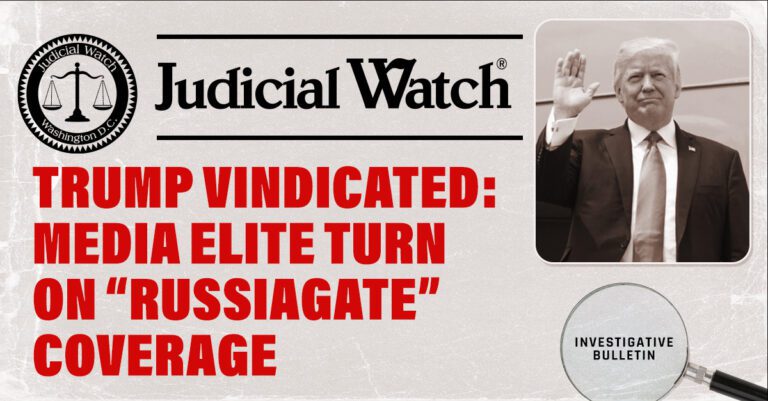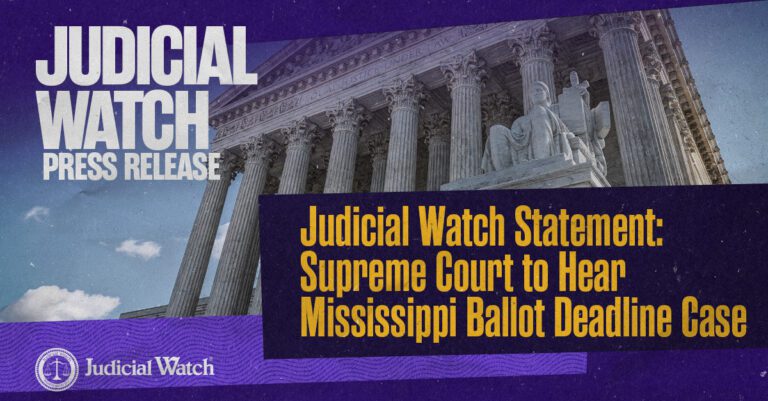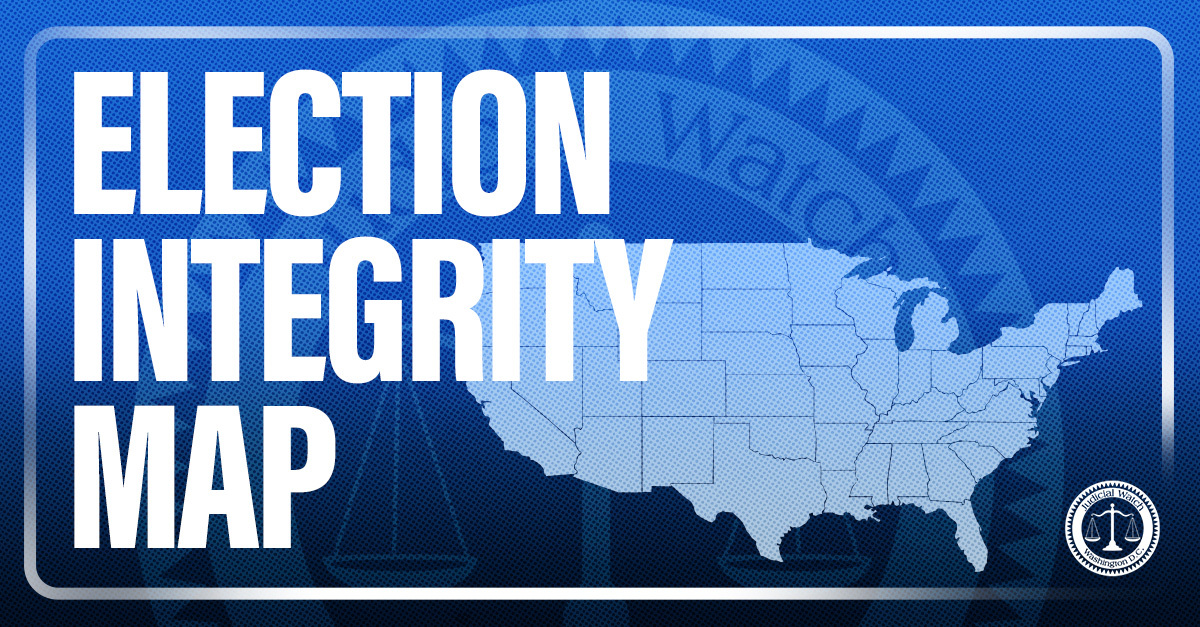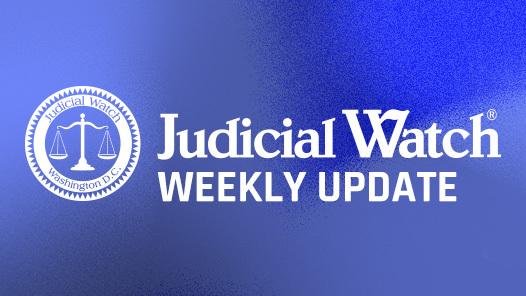
Trump Vindicated: Media Elite Turn on “Russiagate” Coverage

The entire mad media Russia mess of the Trump presidency—the furious coverage of the salacious Steele Dossier, the Mueller special counsel probe, the presidential tweets and bombast, the FBI inquiries, Congressional inquiries, inspector general inquiries, the sinister suggestions of collusion and corruption, treason and betrayal, prostitutes and pay offs, the small fish hauled in and then tossed aside—Flynn, Page, Papadopoulos, Kilimnik, Manafort, Mifsud, Millian, Bannon, Stone—“which office do I go to, to get my reputation back,” former Labor Secretary Ray Donovan famously asked in an earlier scandal—the white-hot spectacle has faded from the news cycle. The circus has left town.
Years too late to have any real-time impact, it now appears that a reckoning has begun to arrive. Close observers of the media landscape may have noticed a shift when Bob Woodward, the most famous name in American journalism, began reminding readers of his opinion of the Steele Dossier. The dossier is the Rosetta Stone of Trump era reporting. Published to an immediate media frenzy in January 2017, the dossier was a compilation of grotesque rumors and allegations against the newly elected president—purportedly the work of a skilled Western intelligence asset, but in reality, as would emerge much later, the product of Trump’s political enemies.
In The Trump Tapes, an audio book of Trump-Woodward interviews published in November, Woodward repeatedly reminds Trump that he called the Steele Dossier a “garbage document” on Fox News as far back as 2017, and that Trump tweeted a thank you.
Woodward went further with his Washington Post colleagues, reports former New York Times investigative journalist Jeff Gerth in a monumental takedown of media coverage of Trump, “The Press Versus the President.” After the Fox News appearance, Woodward told Gerth in an interview, he “reached out to people who covered this” at the Post to express his concerns. Reporters at the Post ignored him, Woodward said. “To be honest, there was a lack of curiosity on the part of people at the Post about what I had said, why I said this.”
Gerth, like Woodward, is very much a figure of the media elite, a storied and widely respected investigative reporter. “The Press Versus the President” appears in a leading industry publication, the Columbia Journalism Review. Few news organizations “have reckoned seriously with what transpired between the press and the presidency,” Gerth writes. His 24,000 word, four part report goes a long way to correcting the record. It likely will remain a landmark study of media malfeasance for decades to come.
Gerth focuses on the Times, the Washington Post, and the Wall Street Journal—still the standard setters across the journalistic spectrum. At the root of the problem in the Trump era, Gerth writes, “was an undeclared war between an entrenched media and a new kind of disruptive presidency.”
Gerth sets important context for understanding this war. He notes that it was Hillary Clinton, not Trump, who began the campaign “facing scrutiny over Russia ties.” He details the financing and evolution of the Steele Dossier as a product of Clinton allies and hired guns, and the media’s long love affair (with a few notable dissents) with the document. He reminds us that the Steele Dossier exploded on to the media scene after Trump won the election but before he was inaugurated—setting in motion a chain of events that embittered the new president toward the press and touching off dreams of a new Watergate among legions of ambitious reporters. He gets the former president and others on the record in interviews that offer revealing glimpses into the psychological dynamics at work on both sides of the war.
The president-elect was blindsided by the Steele Dossier. “Trump, unaware of the coming tornado, including the most salacious contents of the dossier, set out to make peace with the press [after the election]. He made the rounds of news organizations, meeting with broadcast anchors, editors at Conde Nast, magazines, and the Times.” At the end of the Times meeting, Gerth notes, he called the paper a “world jewel” and added, “I hope we can get along.”
After the emergence of the Steele Dossier and a tsunami of Russia-related stories, the new president abandoned hope of getting along the media. “I realized early on I had two jobs,” Trump told Gerth in an interview after he left the presidency. “The first was to run the country, and the second was survival. I had to survive: the stories were unbelievably fake.”
Fake—but deadly serious. A special counsel probe, led by Robert Mueller, was quickly trigged and Congress began to investigate. The Mueller probe loomed over Trump for two years—a mortal threat to his presidency. The probe, Gerth notes, “issued more than 2,800 subpoenas, interviewed 500 witnesses, and generated enormous interest. There were 533,000 news articles published involving Russia and Trump or Mueller…. The articles led to 245 million interactions on social media.”
In the end, Trump was cleared of wrongdoing. In a lengthy report, Mueller wrote: “the investigation did not establish that members of the Trump campaign conspired or coordinated with the Russian government.”
No collusion. No conspiracy. Trump tweeted that the Mueller Report was a “complete and total exoneration.” But the media did not quit—or for the most part even pause for reflection.
The Mueller Report noted “multiple links between Trump Campaign officials and individuals tied to the Russian government,” and ten episodes of possible obstruction of justice. Gerth notes that “the media, having already learned there was no overarching conspiracy, fleshed out the new details, including the more than hundred ‘links’ cited by Mueller.”
Gerth is perhaps at his best examining these small fish and their fate at the hands of the FBI, Mueller, and the media. One example is Konstantin Kilimnik, a Russian-Ukrainian political consultant tied to former Trump campaign chief Paul Manafort. The Mueller Report, Gerth notes, said the FBI assessed Kilimnik “to have ties to Russian intelligence.” Manafort met with Kilimnik in August 2016 and shared campaign polling data with him. Sharing polling data apparently is a serious crime to the FBI—or so Mueller’s prosecutors believed. A later Senate Intelligence Committee Report called the Manafort-Kilimnik meeting as the “single most important direct tie” between the Trump campaign and Russian intelligence.
“But the evidence of Kilimnik’s Kremlin ties is far from certain,” Gerth notes. The “only known official inquiry, by Ukraine in 2016, didn’t result in charges. And some recently surfaced documents suggest that Kilimnik in fact was a “sensitive source” for the U.S. State Department.
Other once-promising villains in the media narrative of Trumpian wrongdoing, including Carter Page, George Papadopoulos, and Michael Flynn, get similar treatment from Gerth. And he offers a sharp analysis of what went wrong between the press and the president.
His main conclusion? Journalism’s “primary missions” of “informing the public and holding powerful interests accountable” have been undermined by an “erosion of journalistic norms and the media’s own lack of transparency about its work.” The U.S. media failed “to report facts that ran counter to prevailing narrative;” failed to seek comments from people who were “the subject of serious criticism;” failed to put reasonable limits on the use of anonymous sources; and failed to take a close look at their own behavior and motives.
And what of the president himself? The media’s failings were many, but Gerth also suggests that Trump’s towering self-confidence and love of showmanship contributed to his poisoned relationship with the press.
“At times,” Gerth notes, “Trump seemed to be almost toying with the press, offering spontaneous answers to questions about Russia that seemed to point to darker narratives.”
“I’ll often sit down with hostile press,” Trump told Gerth, “just to see if it’s possible to get them to write the truth. It almost never works.”
***
Micah Morrison is chief investigative reporter for Judicial Watch. Follow him on Twitter @micah_morrison. Tips: [email protected]
Investigative Bulletin is published by Judicial Watch. Reprints and media inquiries: [email protected]

















